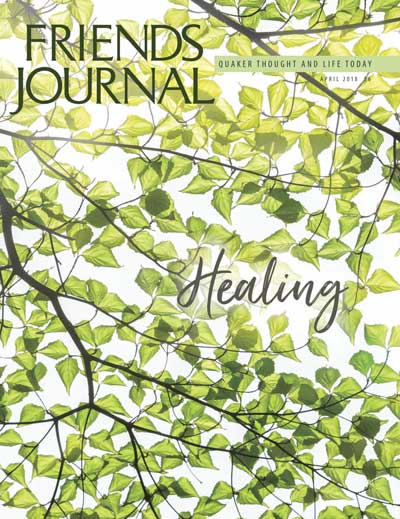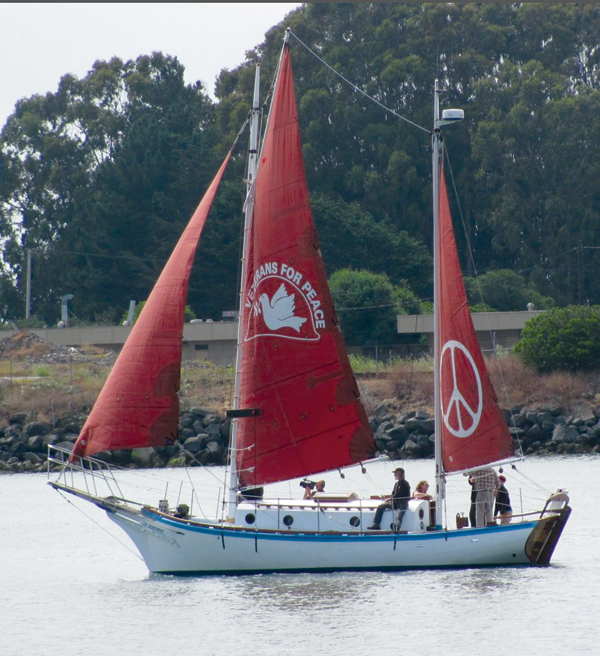New website features WWI conscientious objectors
A website featuring a collection of over 700 digitized archival items from the Swarthmore College Peace Collection that relate to conscientious objection during World War I debuted in February. The website, “Conscientious Objection and the Great War: 1914–1920,” was created and curated by Swarthmore archivist Anne Yoder.
The origins of the project go back to 2003 when the Peace Collection received a boxful of documents by brothers David and Julius Eichel, Jewish socialists who were both conscientious objectors (COs) during World War I. Unlike members of the historic peace churches (Amish, Mennonites, Brethren, and Friends) who cited religious beliefs in their applications for CO status, the Eichels’ reason for opposing participation in the war was non-religious, revealing a broader spectrum of CO thought from this time period.
As socialists, “They saw things more broadly,” says Yoder. “A lot thought it was really the wealthy businessmen who were running the war, who wanted the war because they made a lot of money out of it. The socialists could talk about what war did to people and society, and why they should hate war, which takes away so much from our society and from our world.”
Yoder says of working with the donation, “I had never heard of the Eichels, but they soon became the center of a new obsession for me.” While going through the brothers’ papers, Yoder found herself drawn to other WWI CO-related sources in the Peace Collection, and soon, with the help of a volunteer, she had over 500 pages of transcription.
Yoder points out, “The Historic Peace Churches have done a wonderful job of preserving the archives and stories of their own traditions, but not nearly as much has been done to bring forward those from outside these traditions.” The online publication of this collection will help to shed light on conscientious objection more generally.
Of the decision to place the information on a website rather than publish in a book, Yoder says she “wanted to be able to share as many of the sources with the public as possible, with little editorial downsizing or opinion to get in the way. . . . Here the words of the COs themselves could shine, telling about their experiences through their own voices.”
Other collections and institutions are making CO-related materials available through the site as well, featuring both American and British COs. Visit the website at cosandgreatwar.swarthmore.edu.
Evangelical Friends Church cuts funding for Barclay Press
Evangelical Friends Church of North America (EFC-NA) cut ties with Barclay Press on February 14. The Executive Committee notified Barclay Press in an email that it would no longer be providing financial support after 2018.
Previously, EFC-NA had planned to reduce financial support gradually to 50 percent by 2019; this decision had been a result of EFC-NA laying down its Christian Education Commission.
A Quaker publisher based in Newberg, Ore., Barclay Press was formed in 1959 to serve the Friends Church through the publication of books, pamphlets, curriculum, and periodicals. For 42 years Barclay Press was owned and operated by Northwest Yearly Meeting of Friends Church. In 2001 the curriculum publication ministry of Evangelical Friends International (operating as George Fox Press) merged with Barclay Press.
Notice of the decision to stop funding Barclay Press was shared in an email to its publisher, Eric Muhr. In that email, Adrian Halverstadt, director of EFC-NA, shared his concern: “I can only imagine the additional burden this adds to your load of responsibility with Barclay Press. . . . May the Light of Christ shine forth clear direction for you in the days ahead.”
“This decision puts Barclay Press in a very difficult financial position,” commented Muhr, who has served as publisher of Barclay Press since 2015. He added that there are three realities that make him hopeful. One evangelical yearly meeting has notified Barclay Press of its intention to maintain financial support, and a number of evangelical Friends churches have recently increased the size of their Sunday school curriculum orders. Further, five new titles are in the works at Barclay Press. Two of these are Shalom, an eBook and pamphlet on peace, and a history of the Friends pastoral system.
In 2010 EFC-NA commissioned Illuminate, a Friends Bible study series, from Barclay Press, accounting for a significant amount of income. Evangelical Friends churches and their members account for the purchase of more than two-thirds of all Barclay Press products, including membership class materials, books, pamphlets, and Fruit of the Vine, a quarterly devotional reader.
Farm conference held at Friends Meeting School
Friends Meeting School in Ijamsville, Md., hosted a farm conference February 13–15 called “This Land is Our Land.” The conference was attended by students, teachers, and farmers, and had the goal of creating an understanding of farming’s opportunities and challenges.
Friends Meeting School has an established school farming program where high school students take on independent projects. Lower school students assist the projects by completing tasks like taking measurements and planting, while learning the basics of plant cultivation.
Lower school coordinator and lead teacher Charlotte Murphy served as conference organizer. “Global food security and farming stability is essential to nations the world over,” Murphy said. She stated the conference goals include helping students “understand and appreciate the essential role that responsible, community-focused farming will play not just in their futures but in the futures of kids like them on every continent, in every country, in every state, in every county, and in every community.”
Quaker folk singer Annie Patterson led a sing-along for the conference, which was open to the public. Also attending the conference were farmers from around Maryland, some of who supply fresh produce to the school and other surrounding businesses. The farmers use a mix of traditional farming methods and newer methods such as aquaponic and hydroponic farming.
Educators at the conference discussed farming curricula for students that can be adjusted for various age groups and include a focus on how farming, especially cooperation between farmers and communities, will play a role in the future of food security around the world.
Another focus of the conference was to bring together educators to share resources and information on teaching farming in schools. Many Friends schools in the United States boast school farming programs. The farm conference allowed educators in the Quaker school community to share curriculum and discuss their tools, techniques, and ideas to help create better farming education.
Murphy discussed the prevalence of farming programs at Friends schools. “At Scattergood [Friends School] in Iowa, the students spend their first month working on the farm to build community, learn deeply about healthy food and food systems, and make important connections to the natural world.” Additionally, “Olney [Friends School] has a large organic farm that supplies a significant portion of the produce, eggs, and fruit used in the school’s kitchen. Students there have helped develop planting schedules that maximize harvesting during the school year.”
The conference, which was made possible by a grant through the Miles White Beneficial Society administered by Baltimore Yearly Meeting, was the first farm conference to specifically bring together farm educators in the Quaker school community.




Comments on Friendsjournal.org may be used in the Forum of the print magazine and may be edited for length and clarity.